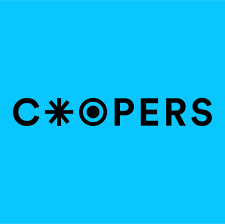The
Translational Neuromodeling Unit (TNU) is a division of the Institute of Biomedical Engineering and a joint venture by the University of Zurich and the Swiss Federal Institute of Technology (ETH Zurich). Its mission is to translate advances in computational neuroscience into clinical practice. To this end, the TNU brings together neuroscientists, computational scientists, and clinicians who jointly develop computational models of brain function and evaluate their clinical use in patient studies.
The TNU operates a dedicated research clinic equipped with laboratories for encephalography (EEG) and various physiological/behavioural measurements. In addition, it has recently established a novel laboratory for magnetoencephalography (MEG) based on optically pumped magnetometers (OPM). This lab hosts a state-of-the art OPM-MEG system within a custom-made magnetically shielded room.
Job descriptionThe position is initially funded for one year, with potential extension. The ideal starting date is 01 December 2025 but can be negotiated. We are looking for a researcher with a track record in OPM-MEG research and, ideally, previous postdoctoral experience. The scientific function role is intended to be at the ETH level of Oberassistent/in (Established Researcher).
The position is designed to conduct theoretical and experimental research in line with the TNU research agenda. In particular, the successful applicant is expected to focus on the development and validation of novel methods and experimental paradigms for OPM-MEG. For example, this includes developing new OPM-MEG methods concerning motion robustness, naturalistic paradigms, combination with VR/AR, simultaneous brain-body recordings, individualised recordings, or high-throughput imaging.
In addition, the successful applicant is expected to contribute to the supervision of PhD and/or MSc students and to teaching activities of the TNU.
The successful applicant will be working in two locations: the main building of the TNU (Wilfriedstrasse 6, 8032 Zurich) and in its OPM-MEG laboratory (Gloriastrasse 37/39, 8006 Zürich).
ProfileMandatory qualifications and characteristics include :
- An academic background in physics or engineering (or a related field),
- Successful completion of a PhD,
- Profound practical and theoretical expertise in OPM-MEG,
- Excellent programming and computational/statistical skills (e.g. generative modeling, machine learning),
- Excellent writing skills,
- Excellent communication and time management skills,
- Interest in working in a highly interdisciplinary environment,
- Collaborative spirit and team player attitude,
- Excellent command of the English language.
Desirable (but not mandatory) qualifications include :
- Experience with the programming languages Julia and Matlab,
- Experience with the development of open source software,
- Experience with the neuroimaging analysis packages SPM and/or FieldTrip.
We offerWe offer an academic environment that is international, highly interdisciplinary (from mathematics to medicine), and ambitious yet friendly and supportive. We support our young scientists in their careers and strive for flexible solutions enabling people to combine family and work. We are committed to principles of robust science, including open source software, preregistration of analyses, and code review.
> Working, teaching and research at ETH Zurich
We value diversity and sustainability In line with our values , ETH Zurich encourages an inclusive culture. We promote equality of opportunity, value diversity and nurture a working and learning environment in which the rights and dignity of all our staff and students are respected. Visit our Equal Opportunities and Diversity website to find out how we ensure a fair and open environment that allows everyone to grow and flourish. Sustainability is a core value for us - we are consistently working towards a climate-neutral future .







